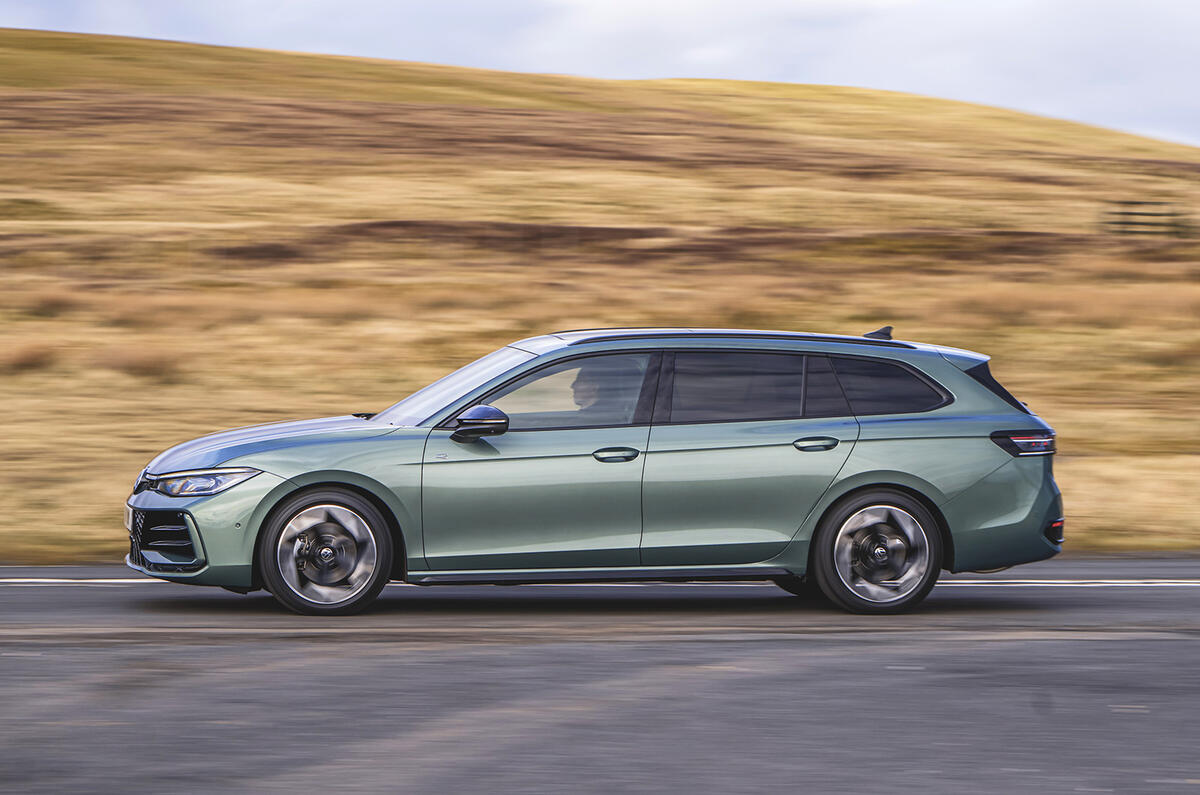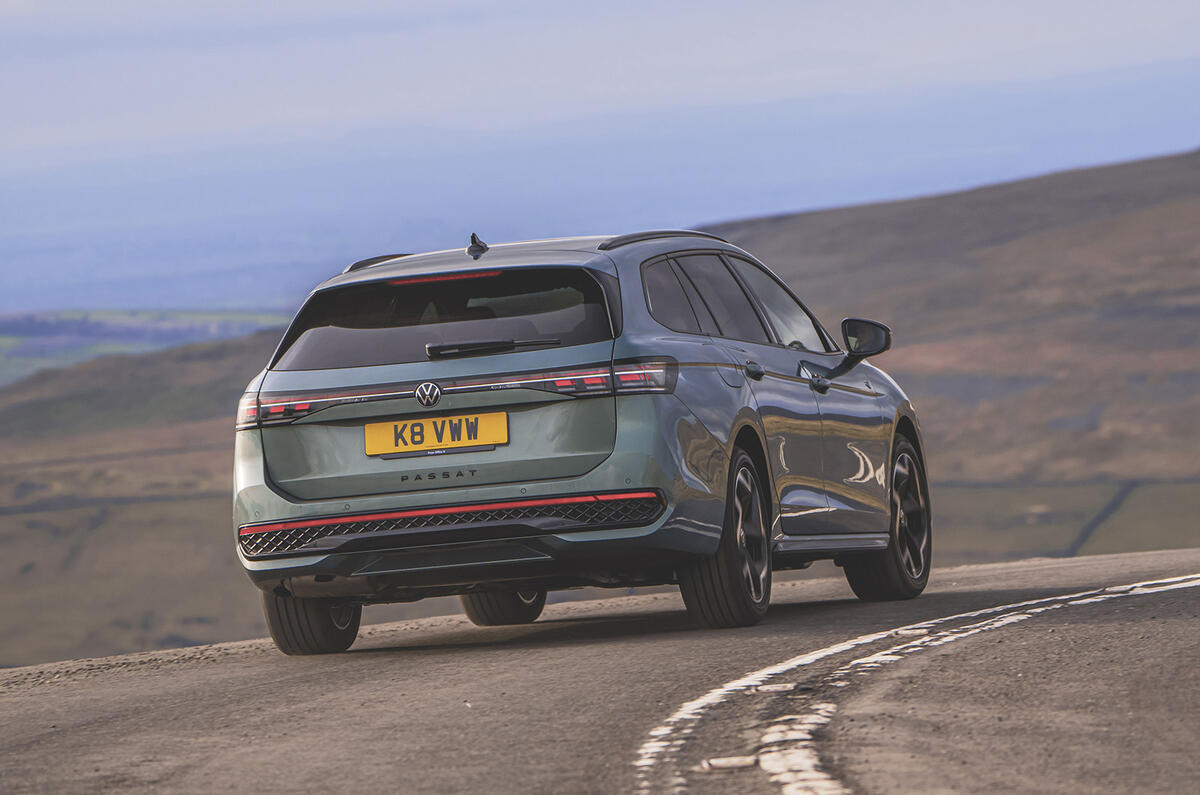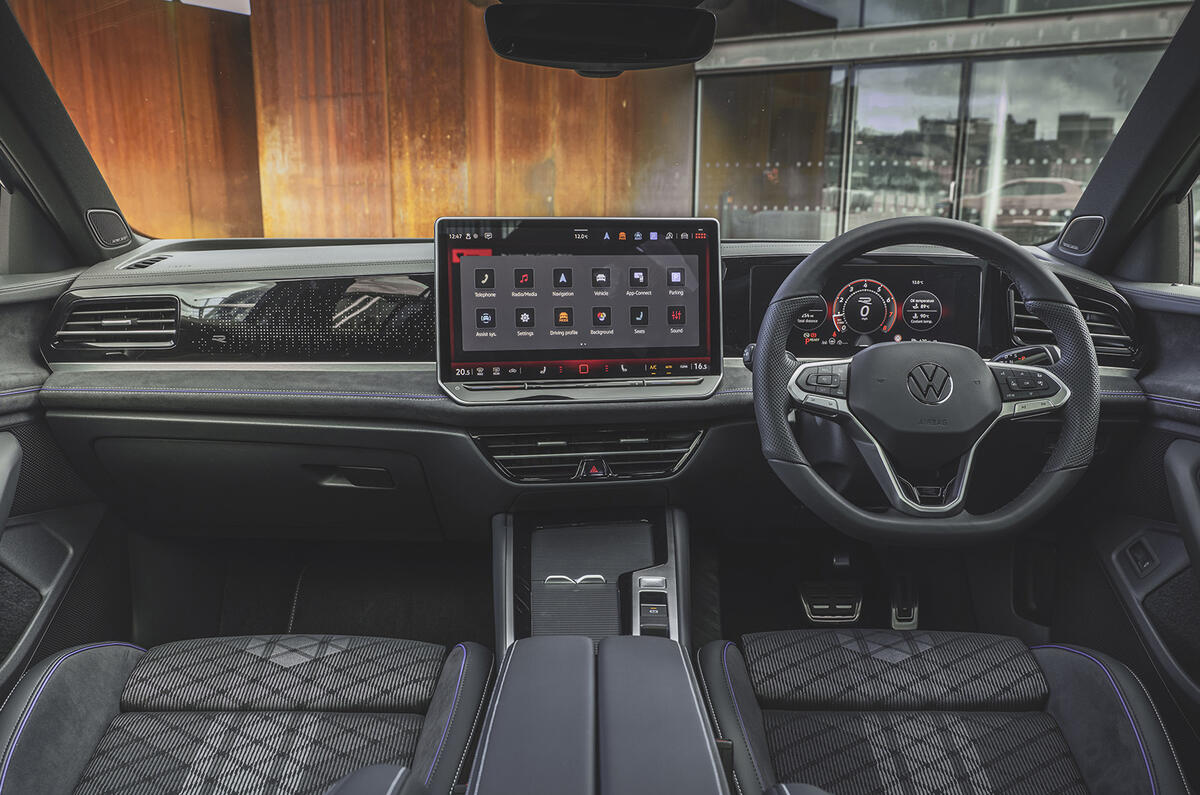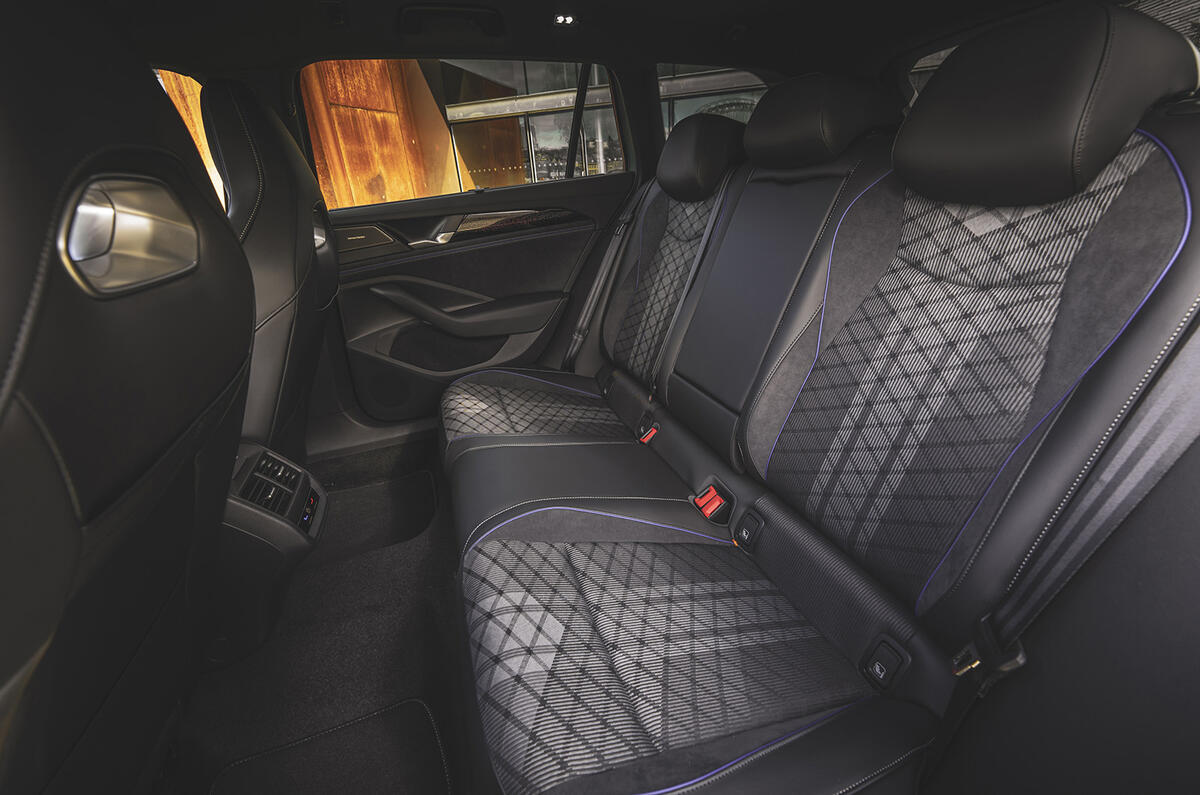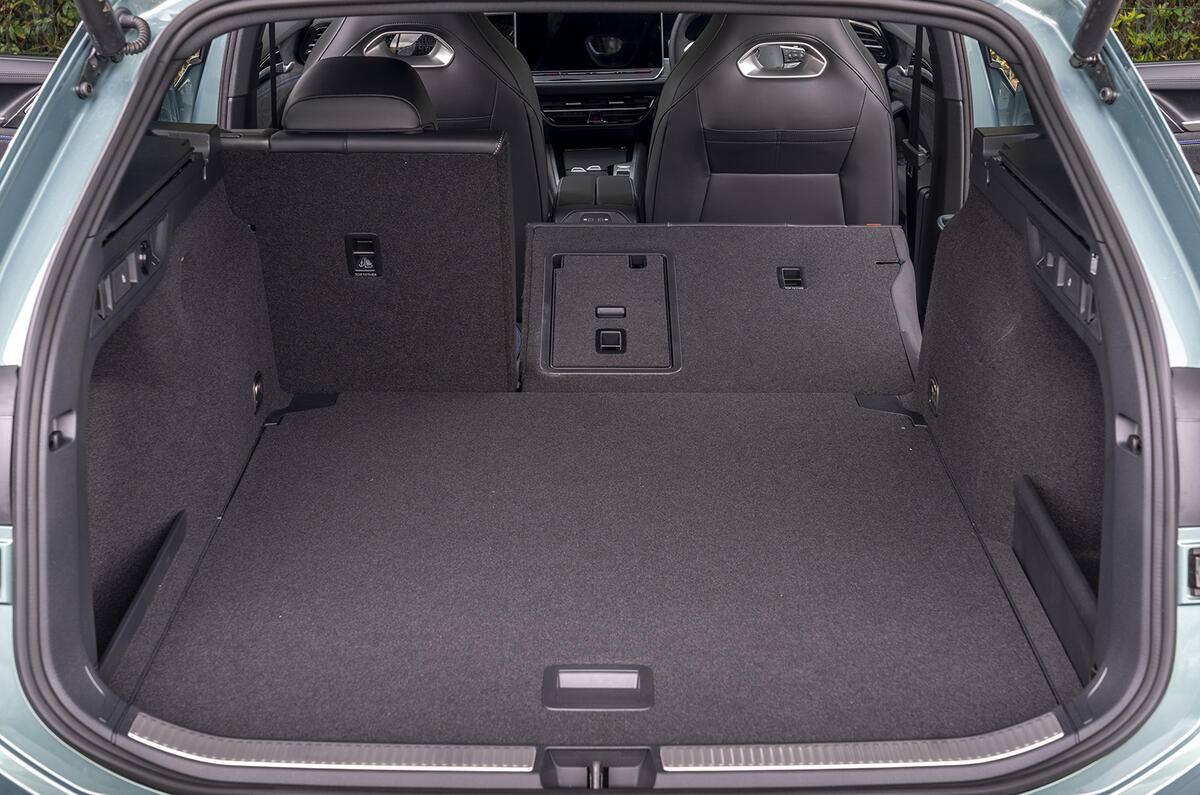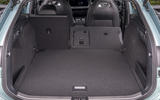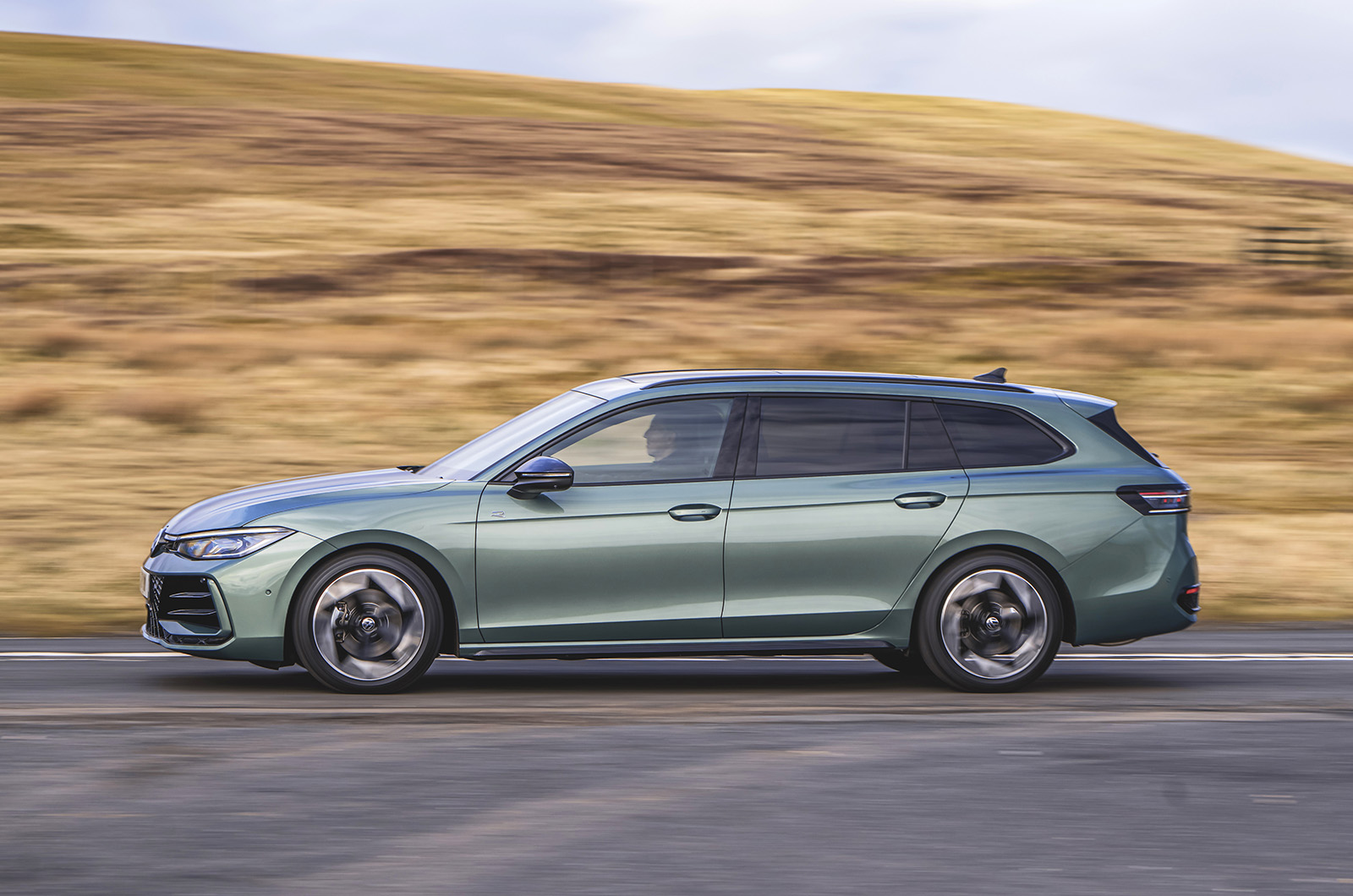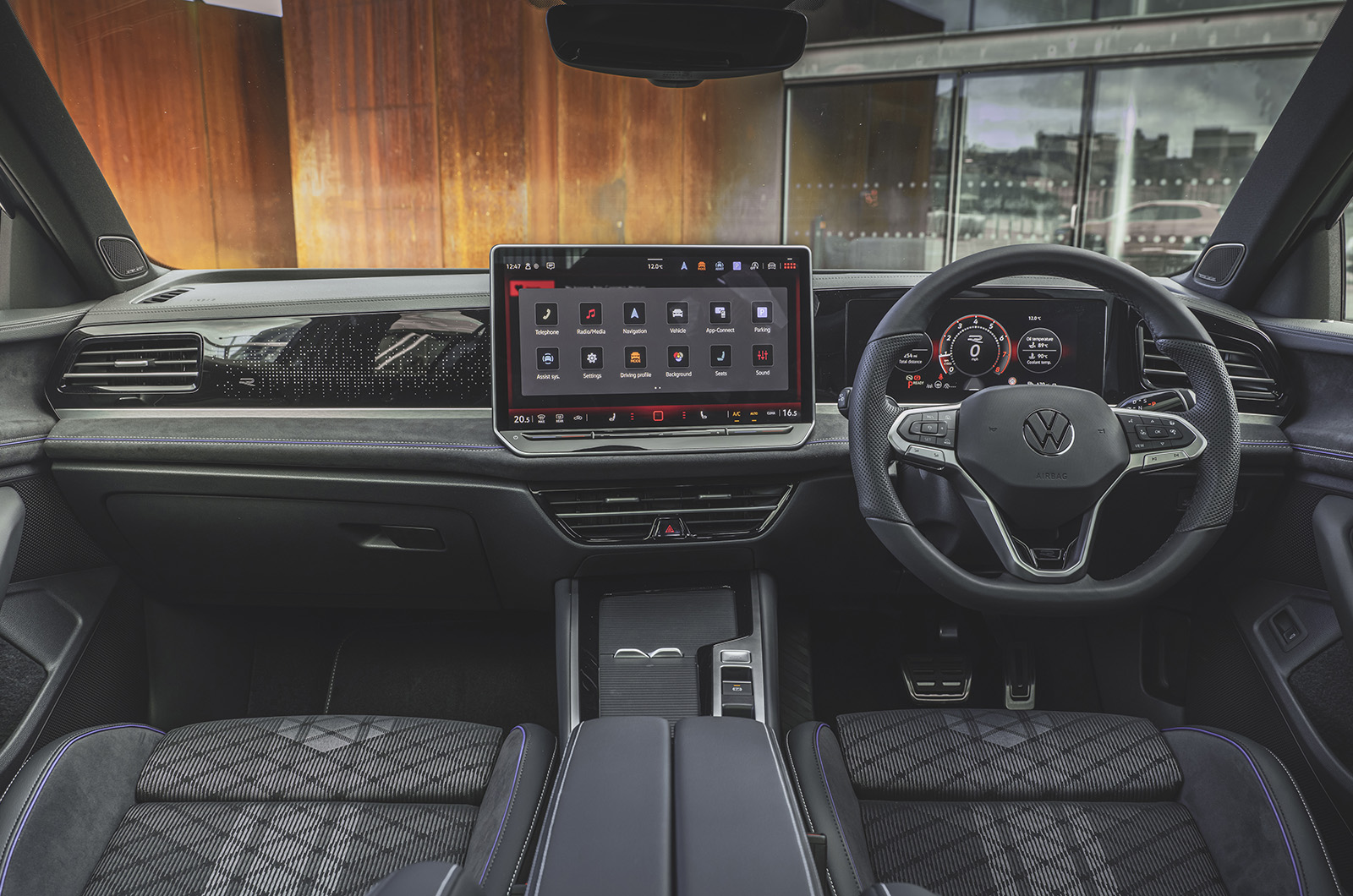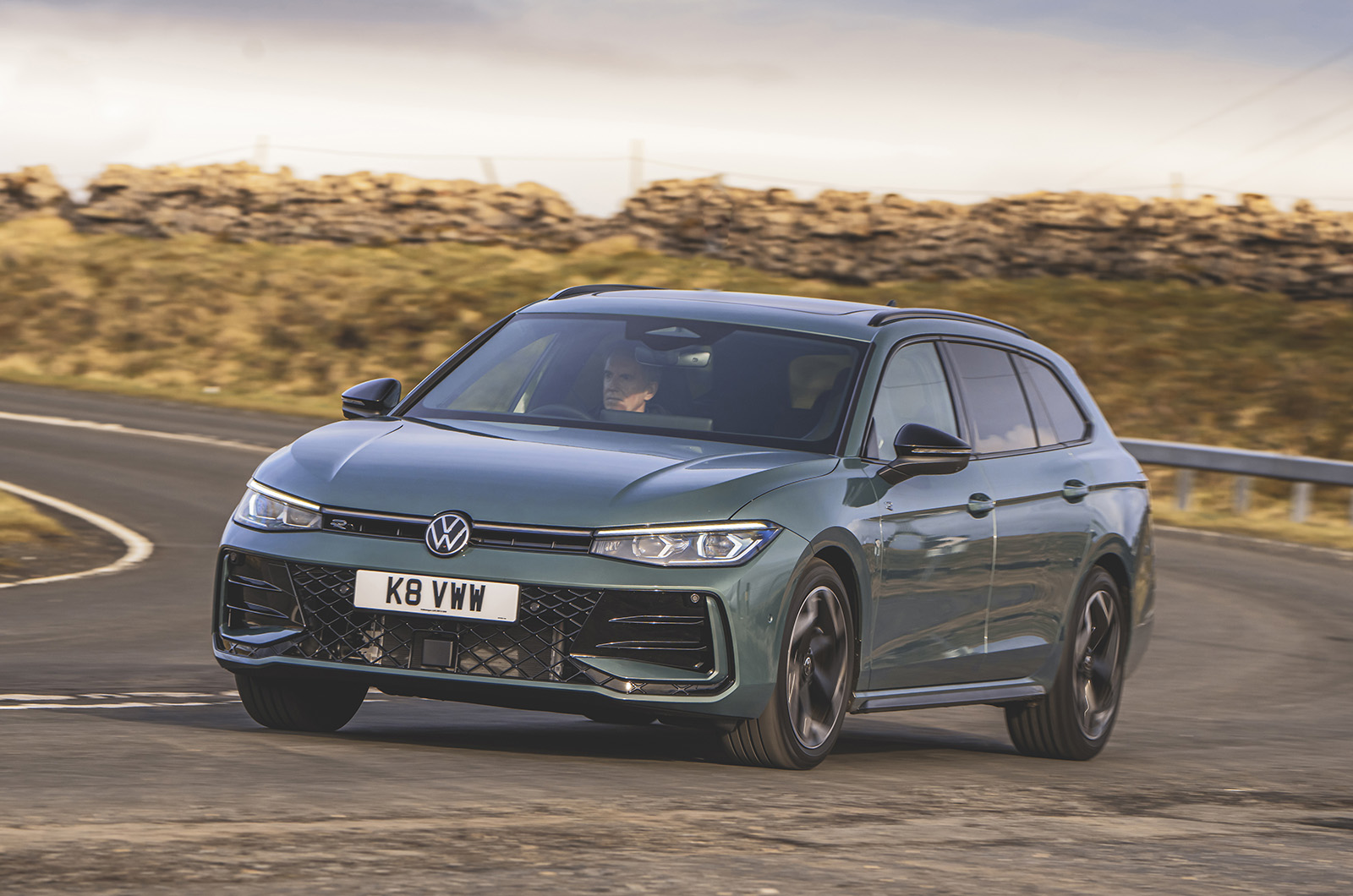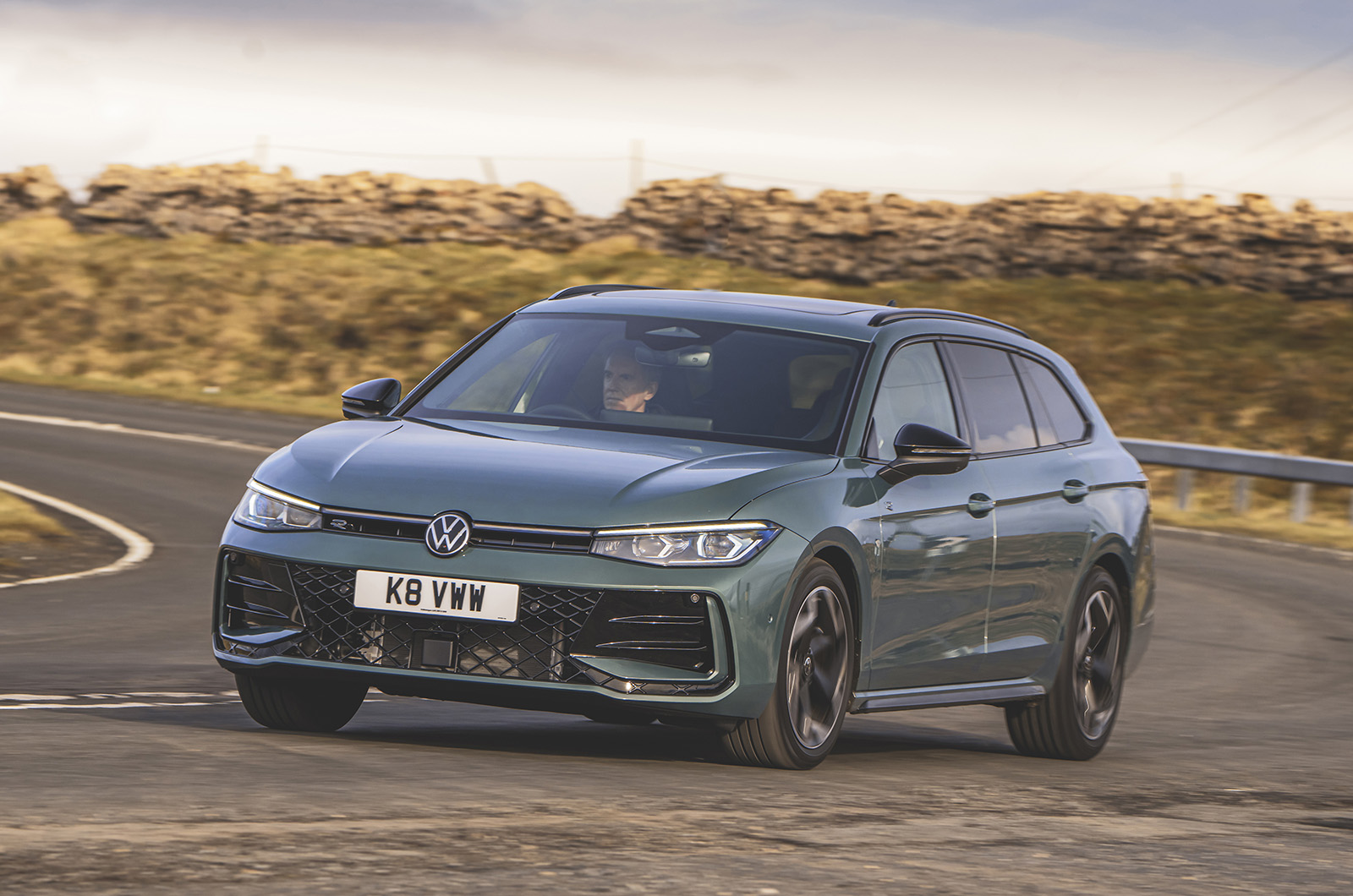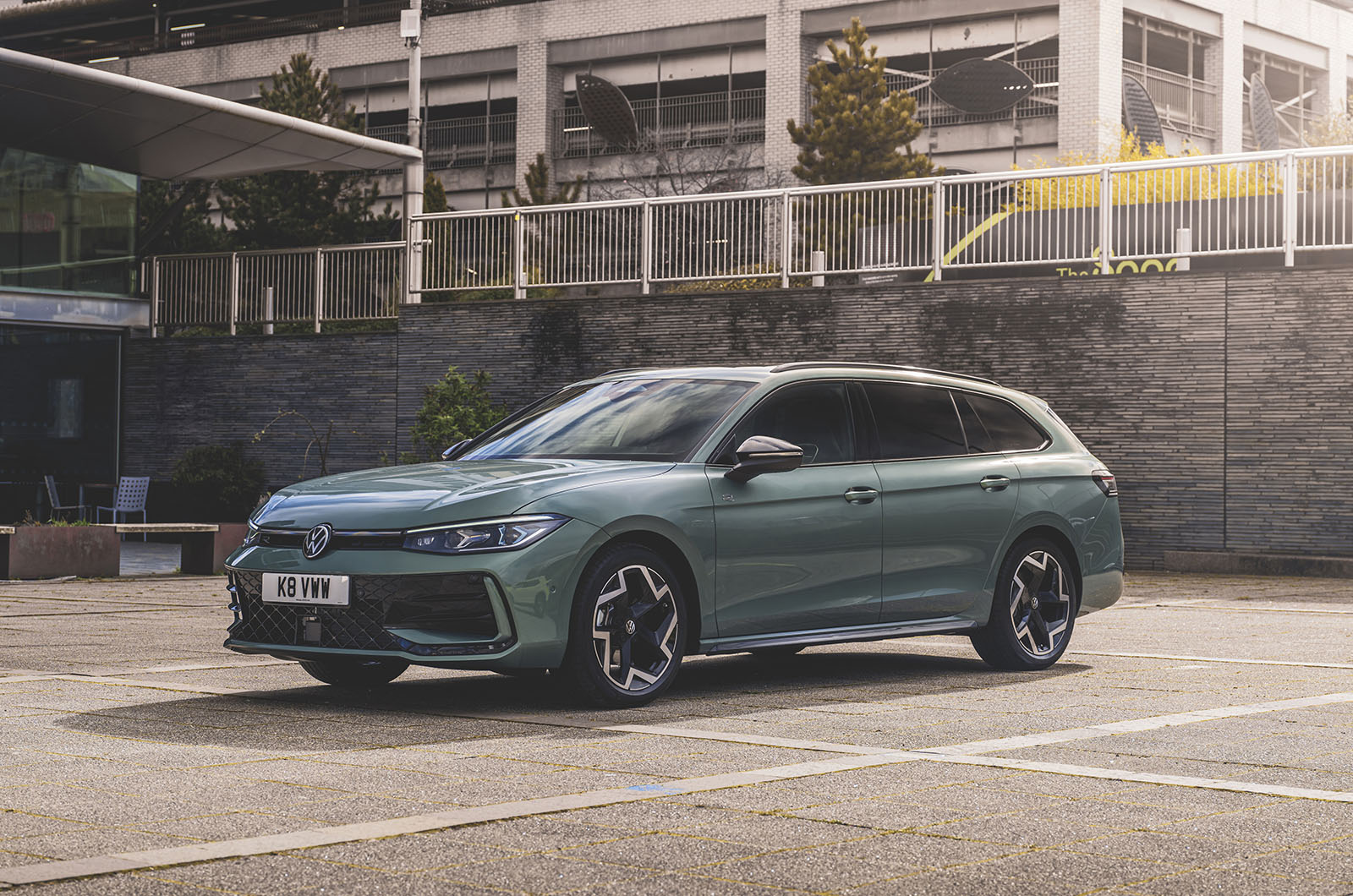The tech-centred era in which the car seems thoroughly ensconced presents certain problems for the market’s established players - especially where older ‘legacy’ models are concerned.
The Volkswagen Passat is certainly one of those – and because so many of us feel like we know it so well, we’ve come to develop certain expectations of it that simply don’t encumber the likes of BYD, GWM and Nio.
We expect, for starters, a certain sense of maturity, functionality and grounded sensibleness from a Passat – a car that has always served as a filter of the affected, fleeting and superfluous.
Do we expect a 15in central infotainment screen with built-in ChatGPT artificial intelligence? Probably not here. And when you see one on the dashboard of a car like this, drawing your eye like some sort of digital totem, you can’t help thinking: “Crikey, do I really need all that?”
To be fair to Volkswagen, the Passat’s full 15in Discover Pro Max system isn’t standard fit (a 12.9in touchscreen is), so it's far from forced upon you. Moreover, Volkswagen might say that when your money will buy exactly that kind of tech from so many other manufacturers, it simply has to compete.
The funny thing is that in the Volkswagen ID 7, the new electric equivalent of the Passat, I felt very much at home to the system – and it is precisely the same system: usable and navigable enough, with good top-level shortcuts but slightly fiddly icons and no physical controller.
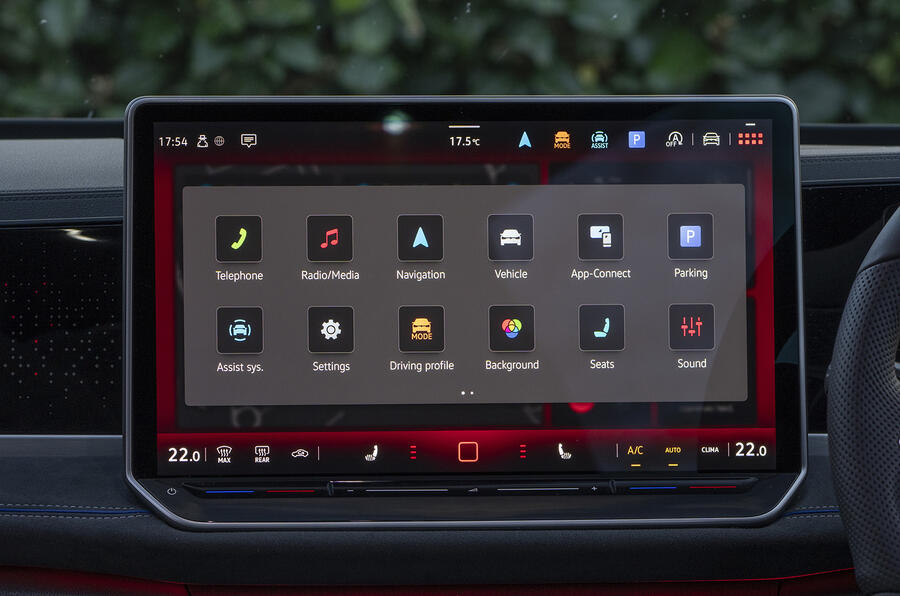
The Passat certainly now exudes a more upmarket feel than at any time in its long history, and not just because of the injection of digital content. The dashboard and other parts of the interior use higher-quality materials than those found in the Mk8, including a new backlit fascia panel with colour-customisable ambient lighting.
Our R Line test car had appealing suede-like synthetic trim on the fascia and doors, too, and attractive grained aluminium decor along with it. It’s not quite as opulent as the Mercedes-Benz C-Class or similar, but it certainly stands up to closer comparison.
There's also a newly designed steering wheel that forgoes the fiddly capacitive controls of recent Volkswagens for straightforward buttons. The climate controls are now fully integrated into the touchscreen, operating in combination with a new backlit slider controller that’s a lot more responsive than what went before.
As in Volkswagen’s ID EVs, the gear selector has been relocated from its traditional position on the centre console to a steering wheel-mounted stalk, freeing up space for a sizeable storage bin housing a wireless smartphone charging pad, a pair of USB-C ports and two cupholders.
The regrettable impact this has, however, is in forcing both wiper and headlight controls onto the left-hand stalk - and that makes flicking on the wipers for one momentary sweep, when the automatic wiper setting isn't quite clearing the screen as you'd like, slightly harder work than it might be.
Newly designed Ergoactive front seats, standard on sporty R-Line trim, reflect Volkswagen’s efforts to provide the Passat with a more upmarket positioning and have firm and supportive properties. There are also new optional Ergoactive Plus seats with electric adjustment, ventilation and massage functions. Our test car had the standard R Line seats, but they had all the adjustment they needed and more – cushion angle and extension, plus integrated headrests, although they didn't adversely affect head and neck comfort.




